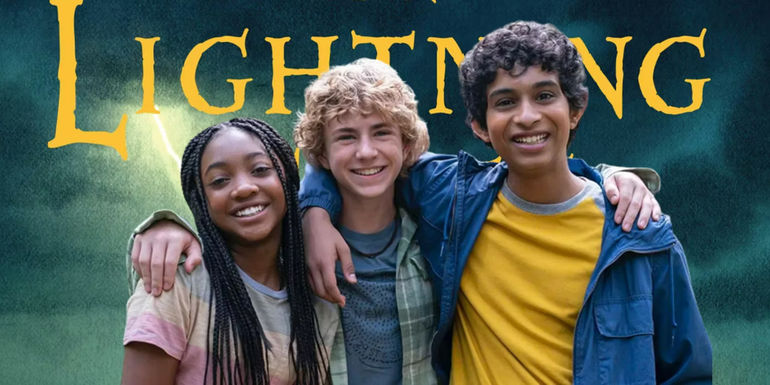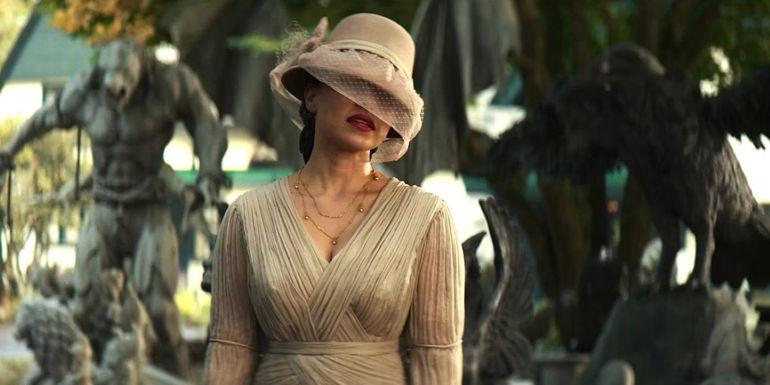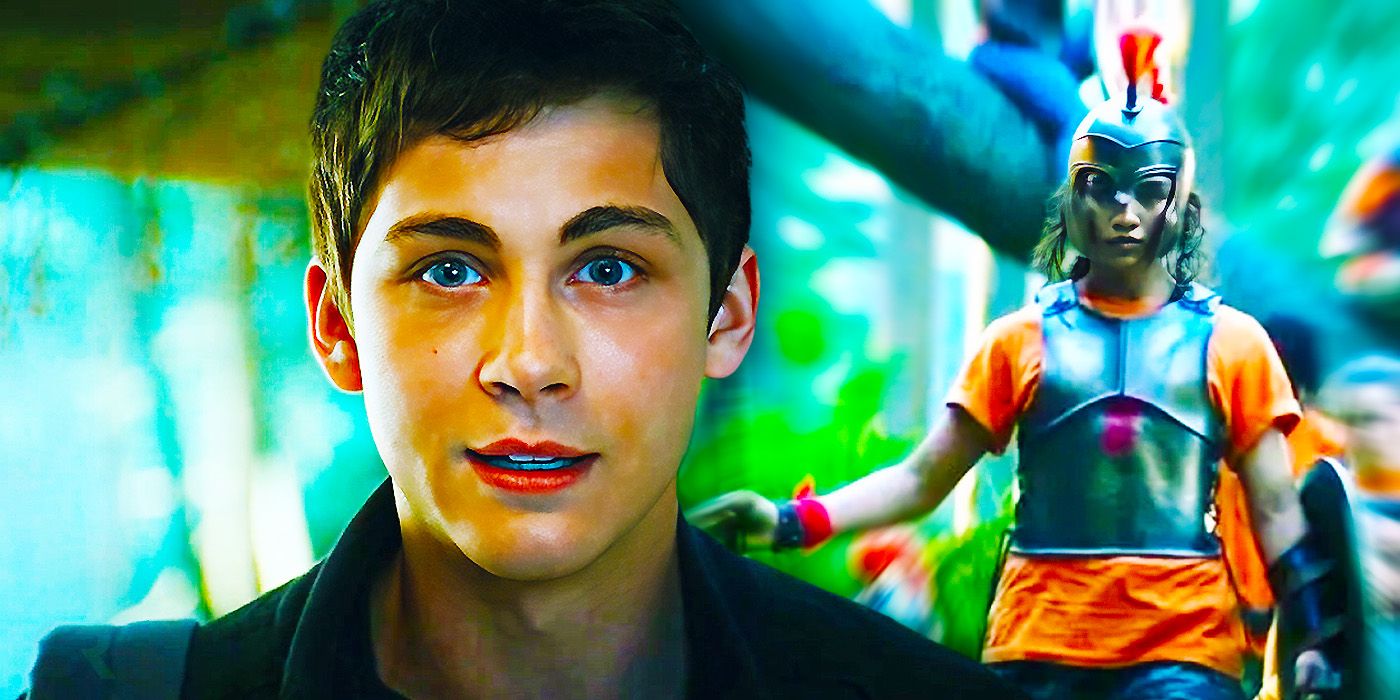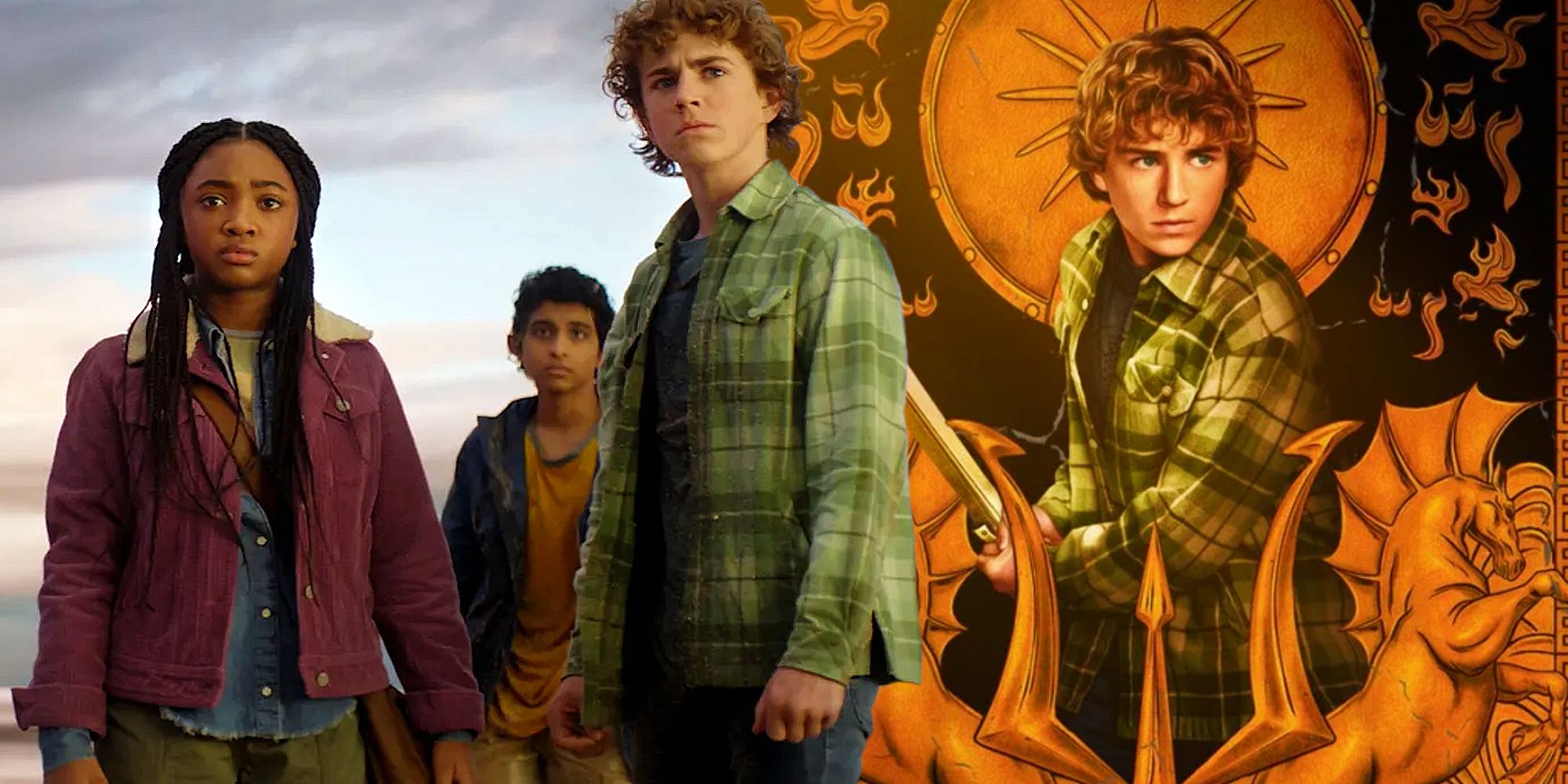
Medusa's Changes in Percy Jackson and the Olympians Episode 3

Exploring the character of Medusa and the changes made to her story in the TV show compared to the original book and Greek myths.
Introduction
Percy Jackson and the Olympians episode 3 introduces the character of Medusa, changing her story from both the original The Lightning Thief book and the real-world Greek myths. One of the biggest story reveals of Percy Jackson episode 3 is that Medusa owns a garden gnome emporium under the alias Aunty Em, offering the trio of Percy, Annabeth, and Grover brief sanctuary from Alecto the Fury. However, Medusa is a Gorgon, another species of mythological creature in Percy Jackson that threatens to derail the quest for Zeus' master bolt.
Percy Jackson Show Lead Trio
The storyline of Percy's encounter with Medusa is one of the more memorable from The Lightning Thief, explaining its centrality to Percy Jackson and the Olympians episode 3. That said, while the spirit of the encounter remains the same, Percy Jackson's TV show makes some book changes to the character of Medusa. The book changes from The Lightning Thief are combined with some notable changes from the original Greek myth of Medusa, allowing Percy Jackson episode 3 to stand on its own two feet concerning the titular son of Poseidon's confrontation with the deadly Gorgon.
Percy Jackson wielding the master bolt next to Medusa and Poseidon from the TV show
Medusa's Real Mythological Story
One of the most notable changes made to the story of Medusa in both The Lightning Thief and Percy Jackson and the Olympians episode 3 concerns her relationship with Poseidon. Both the book and the Disney+ show explain that Medusa and Poseidon were in a romantic relationship, with the couple sullying Athena's temple and leading the goddess of war to curse Medusa to become a Gorgon. While Poseidon and Medusa's relationship is part of the original Greek myth, there have been multiple versions of this story that have some dark implications.
Medusa and Percy in Percy Jackson and the Olympians
Several variations of the original Greek myth of Medusa state that Poseidon sexually assaulted Medusa. While some interpretations describe their relationship as amicable and consensual, other versions of the myth insist that Poseidon's actions towards Medusa were much darker than first thought. Naturally, Percy Jackson and the Olympians' family-friendly nature omits this aspect, depicting Poseidon and Medusa's relationship as a two-sided romance only with the former acting selfishly towards the latter. This is the same in The Lightning Thief, presenting the most notable difference between both versions of Percy Jackson and the Greek myths that inspired them.
Medusa standing in front of her stone garden in Percy Jackson and the Olympians
Physical Appearance and Characterization
Concerning specific differences between Percy Jackson episode 3 and The Lightning Thief, one major alteration is the physical appearance of Medusa. In the book, Medusa is described as a Middle-Eastern woman wearing a burqa, meaning only her veiled eyes and hands can be seen by Percy, Annabeth, and Grover. In the book, Percy - the first-person narrator - describes Medusa as having old hands, hinting that she is much older than the children think.
Jessica Parker Kennedy as Medusa with her eyes and snake hair in Percy Jackson and the Olympians episode 3
This description does not match the version of Medusa in Percy Jackson and the Olympians episode 3. For example, Medusa's actress is Jessica Parker Kennedy who is Canadian. While the actress has an Afro-Canadaian father and a European mother, Kennedy is not Middle-Eastern as Medusa is described in the book. Similarly, Jessica Parker Kennedy does not look older than her actual age which marks a difference from The Lightning Thief's insistence that Medusa is an older woman.
Walker Scobell as Percy Jackson and Jessica Parker Kennedy as Medusa in Percy Jackson and the Olympians



















